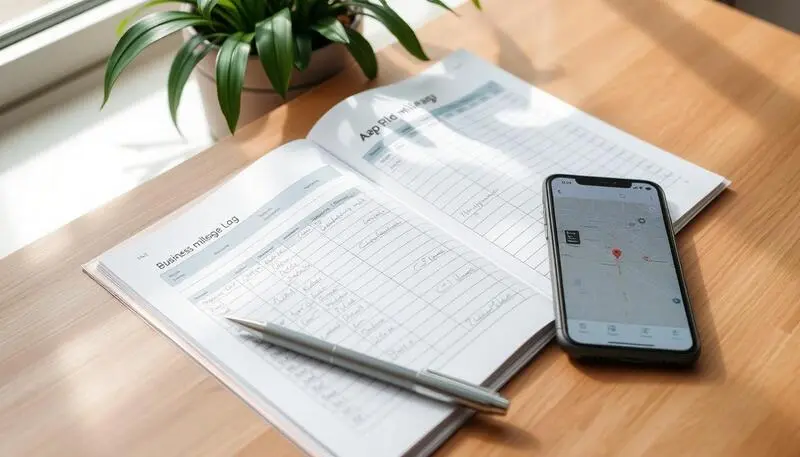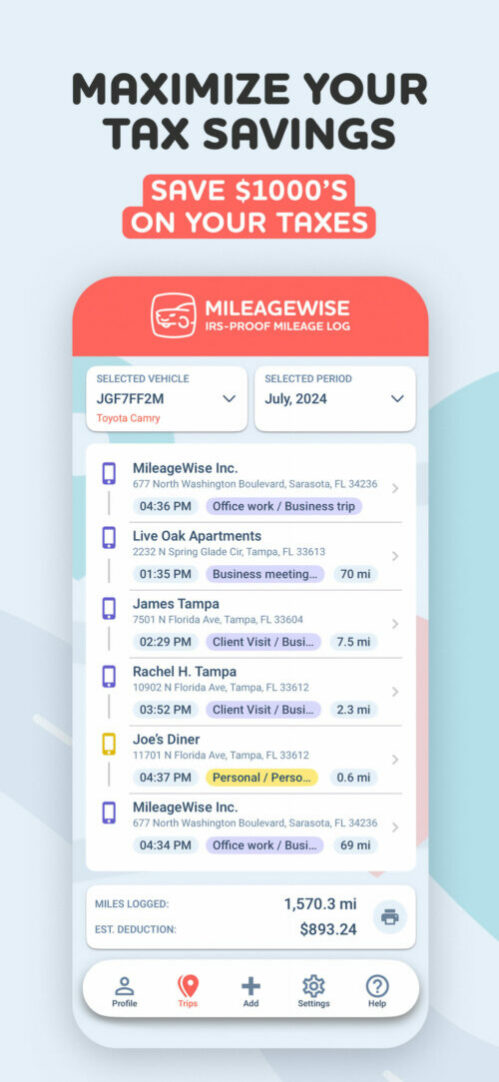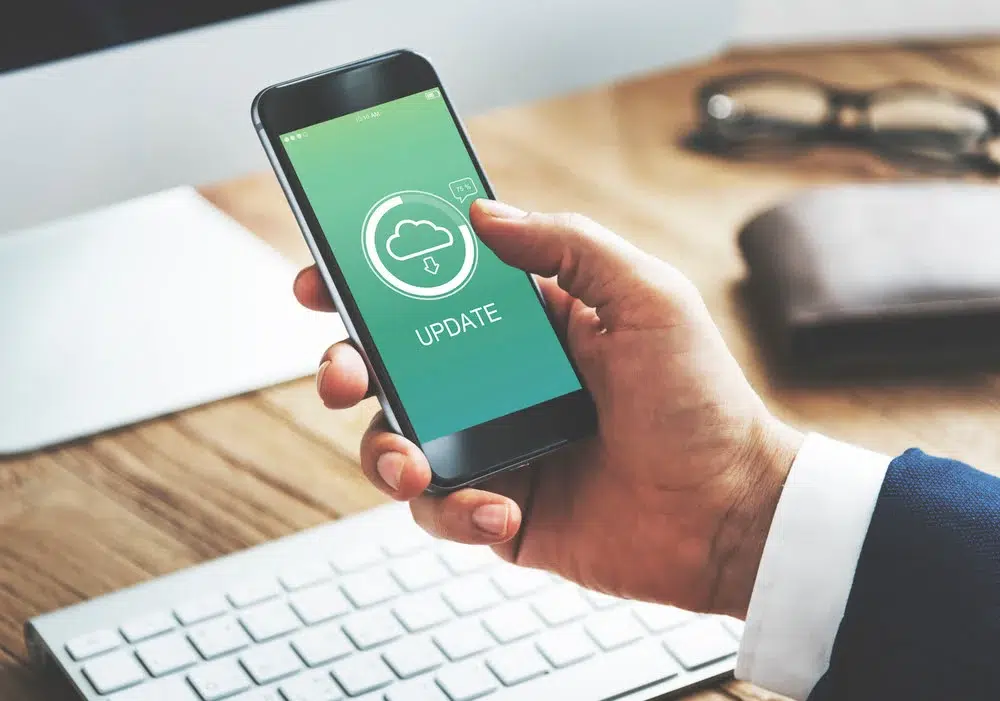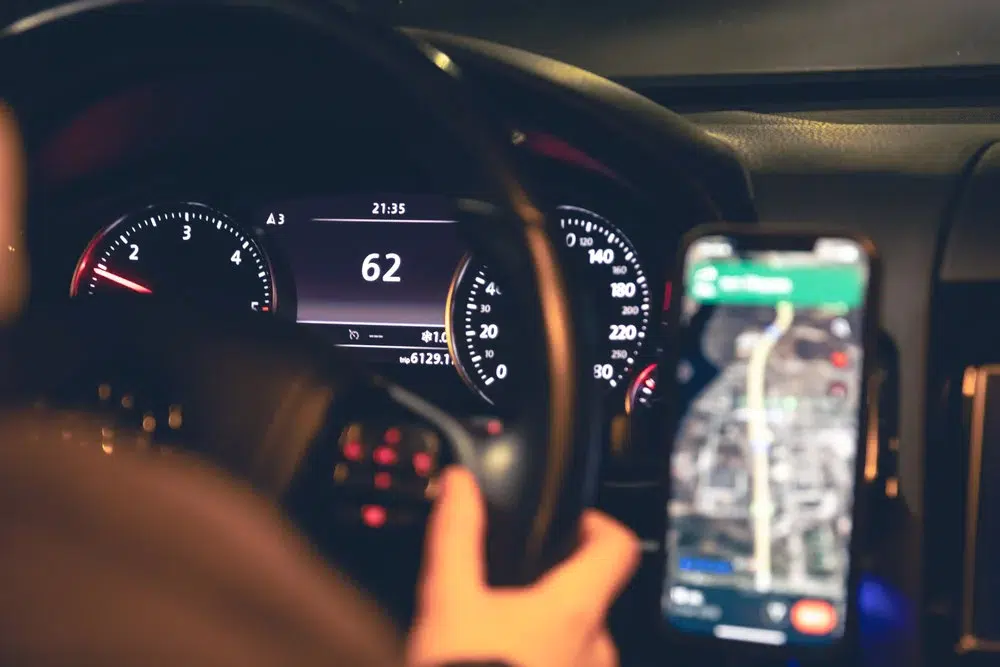Keeping an accurate mileage log for taxes is key for businesses and self-employed folks. It helps them get the most tax deductions and follow IRS rules. A detailed log can cut down your taxable income and help with budgeting and insurance.
The IRS needs proof of business mileage to deduct it. There are many tools to help you keep track of mileage for taxes, from simple logs to smart apps. With the IRS’s mileage deduction rate at $0.67 per mile, you can save a lot. For instance, if you properly track 10,000 business miles a year you can deduct $6,700. How? Let’s find out.
Try it for free for 14 days. No credit card required!
Dashboard
Table of Contents
Self-employed people who owe over $1,000 in taxes must file every quarter. The 2025 standard mileage rates are 70 cents per mile for business, 21 cents for medical or moving, and 14 cents for charity. Following IRS rules and keeping track of mileage ensures you get the highest deduction.
Understanding Mileage Tax Deductions
If you own a business or work for yourself, you might be able to write off some miles driven for work. Knowing what miles you can deduct and how to track them can help you save on taxes.
What Counts as Business Mileage?
Business miles are any trips for work, like:
- Meetings with clients or customers
- Sales calls and presentations
- Business errands (e.g., picking up supplies or visiting the bank)
- Travel to secondary work locations
But, commuting miles (driving from home to work) aren’t deductible for W-2 employees. Yet, if you work from home and it’s your main office, trips from there to other work spots might be deductible.
Deductible Mileage According to the IRS
The IRS has rules for what mileage you can deduct. Besides business miles, you might also deduct miles for:
- Medical purposes (e.g., trips to doctor appointments or medical treatments)
- Charitable activities (e.g., volunteering for a qualified organization)
- Moving expenses (for active-duty military members only)
Remember, personal trips and detours aren’t deductible. For instance, if you stop at the grocery store on your way home from a business meeting, only the miles to and from the meeting count.
By knowing what mileage you can deduct and keeping good records, you can make sure you’re getting all the deductions you’re allowed. This helps lower your tax bill.
Why Tracking Business Mileage is Essential
As a small business owner or self-employed person, knowing how to track mileage for taxes is key. It helps you save on taxes and follow IRS rules. By keeping a record of your business trips, you can get deductions that lower your taxes.
Potential Tax Savings
The IRS lets you deduct 67 cents for each mile driven for business in 2024. So, if you drive 20,000 miles for work, you could save $13,400. This shows how important it is to track your miles well.
| Mileage Type | 2024 IRS Rate |
|---|---|
| Business | 67 cents per mile |
| Charitable | 14 cents per mile |
| Medical | 21 cents per mile |
| Moving (Military) | 21 cents per mile |
Increased Convenience with Mileage Tracking Apps
Mileage tracking apps have changed how we track business expenses. They use GPS to log your trips automatically. This means no more writing down every mile. Plus, they make reports ready for tax time.
Enhanced Audit Preparation
If the IRS audits you, having good mileage records is crucial. You need to keep records for at least three years. A mileage app and organized records help prove your deductions are right.
Methods for Calculating Mileage Allowance
There are two ways to figure out mileage reimbursement: the standard mileage method and the actual expense method. Knowing these methods helps you get the most from your tax deductions and follow IRS rules.
The Standard Mileage Method
The standard mileage method is easy to use. For 2024, the IRS says you can deduct 67 cents for each mile driven for business. Just multiply your business miles by this rate to find your deduction.
But, if you pick this method, you can’t deduct real vehicle costs like fuel, maintenance, or depreciation. Yet, you can deduct parking fees and tolls for your business trips.
The Actual Expense Method
The actual expense method lets you deduct the real costs of using your vehicle for work. These costs include:
- Fuel
- Maintenance and repairs
- Depreciation
- Insurance
- Registration fees
- Lease payments (if applicable)
To use this method, figure out how much of your vehicle’s use was for work. This is done by dividing your business miles by your total miles driven in the year.
| Expense Category | Total Expenses | Business Use Percentage | Deductible Amount |
|---|---|---|---|
| Fuel | $2,500 | 75% | $1,875 |
| Maintenance and Repairs | $1,200 | 75% | $900 |
| Depreciation | $3,000 | 75% | $2,250 |
| Insurance | $1,800 | 75% | $1,350 |
| Registration Fees | $300 | 75% | $225 |
| Total Deductible Amount | $6,600 |
When choosing between these methods, think about your vehicle’s age and how well it runs. Also, consider how hard it is to keep records for each method. Pick the one that works best for you, but always keep good records. A tax expert can help you make sure you’re getting the most deductions while following IRS rules.
Note: record keeping for taxes is easy for both if you choose the MileageWise app. The mileage tracking is fully automated. You only need 7 minutes to revise the trips at the end of the month. With the actual expense method we made sure to include all deductable expense type in the app so you can keep all of you expenses in one place when you need them for taxes.
Getting Started with Mileage Tracking
To start tracking your mileage for taxes, record your car’s odometer reading at the beginning of the year. This step helps you calculate your total business miles. The IRS allows you to claim mileage for work-related travel, like visiting clients or going to meetings.
Next, keep a detailed log of your business trips. For each trip, note the date, purpose, and total miles. An accurate log is key for tax purposes. The IRS says weekly updates are okay for keeping records current.
Using the best mileage tracking app can make tracking easier. These apps log your trips automatically and create reports for taxes. Some apps, like MileageWise, also help with precise mileage calculations and integrating with accounting systems.
When picking a tracking method, consider these options:
- Manual tracking with pen and paper
- Electronic spreadsheets
- Printable mileage log templates
- Mileage tracker apps with web dashboards
Manual tracking and spreadsheets can be error-prone and time-consuming. Apps offer a better solution, ensuring accurate and consistent logs. This reduces the chance of your claims being rejected.
| Tracking Method | Pros | Cons |
|---|---|---|
| Manual (pen and paper) | Simple mileage log, no technology required | Time-consuming, prone to errors |
| Electronic spreadsheets | Organized, easily accessible | Requires manual data entry and also prone to errors |
| Mileage tracker apps | Automated, accurate, IRS-compliant | Requires a subscription fee |
By tracking your mileage well, you can claim tax deductions and save money. Keep your records for at least three years after filing your taxes. This is in case of an audit.
 IRS Guidelines for Mileage Deductions
IRS Guidelines for Mileage Deductions
It’s key for self-employed folks and business owners to know IRS rules on mileage deductions. Following these rules helps save on taxes and keeps you in line with tax laws.
The IRS says you can deduct the full cost of a car used only for business. But, if you use it for both work and personal stuff, you can only deduct the business part. You can use two ways to figure out your car expense: the standard mileage rate or the actual expense method.
Mileage Deduction Rules for Self-Employed Individuals
Self-employed folks can write off business miles on Schedule C of their tax return (Form 1040). For 2024, the IRS sets the standard mileage rate at 67 cents per mile. You must meet certain rules, like not owning or leasing more than five cars at once.
Business Mileage Deduction Rules
Business owners can deduct miles for work on different forms, based on their business type. Sole proprietors use Schedule C (Form 1040), while partnerships and S corporations use Form 1065 and 1120S, respectively. Regular corporations use Form 1120. To use the actual expenses method, you need to figure out the business miles and keep a log of your trips.
- Total annual mileage
- Annual business mileage
- Per-use business mileage
- Date of use
- Business destination
- Purpose of the trip
Keeping good records is crucial. The IRS wants you to keep records for at least seven years. Tax pros say keep your records for as long as you might be audited, which is usually three to six years.
Documenting Your Drives for Tax Deductions
To get mileage deductions on your taxes, you need to keep accurate records of your business drives. This means having a detailed driving log and saving receipts for car expenses. By doing this, you can save more on taxes and follow IRS rules.
Maintaining a Driving Log
A good mileage log book is key for tracking your business miles. IRS rules say your log should have:
- Date of the trip
- Starting and ending locations
- Purpose of the trip (e.g., client meeting, conference, etc.)
- Total miles driven
While you don’t have to log odometer readings for each trip, it’s smart to do so at the start and end of the year or when you change cars. Keeping records for at least three years from when you filed is also a good idea.
Keeping Records of Receipts
It’s also important to save receipts for car expenses related to your business. These can include:
- Gas
- Parking fees
- Tolls
- Maintenance and repairs
Keeping these receipts helps prove your expenses if you’re audited. Employers might ask for these records too, so having clear records is crucial.
Using a modern app like TripLog can make tracking easier. It offers GPS tracking, customizable rules for trip categorization, and IRS-compliant reports. This way, you can follow IRS rules and track your business miles more easily.
Recording Odometer Readings
To track your business mileage for tax deductions, it’s key to record your vehicle’s odometer readings at important times. Logging these readings helps ensure your total mileage is accurate and follows IRS rules.
At the Start of the Tax Year
Start by noting your vehicle’s odometer reading on the first day of the tax year. This reading is your starting point for the year’s mileage. Record it in a reliable log or app to keep your records accurate.
At the End of the Tax Year
When the tax year ends, record your odometer reading again. This final reading, compared to the first, shows your total miles for the year. Subtract the first reading from the last to find your total mileage.
To follow IRS rules, here are some tips for logging odometer readings:
- Keep a detailed mileage log with dates, purposes, and readings for each business trip
- Use a mileage tracking app to automatically log your trips and create reports for the IRS
- Save your odometer readings and mileage logs for at least three years in case of an audit
| Tax Year | Starting Odometer Reading | Ending Odometer Reading | Total Mileage | Business Mileage |
|---|---|---|---|---|
| 2023 | 45,000 | 60,000 | 15,000 | 10,000 |
By recording your odometer readings at the start and end of the tax year, you make calculating your mileage easier. This helps you claim valid business mileage deductions on your tax return.
Level Up Your Mileage Tracking
MileageWise: Tracks trips automatically via vehicle movement, Bluetooth, and Plug’N’Go without draining your battery.
AI-Powered Mileage Log Generator: Our AI tool helps reconstruct past mileage logs and fill gaps in your log to ensure compliance.
Built-in IRS Auditor: Checks and corrects up to 70 potential red flags in logs, ensuring they meet IRS standards for tax deductions.
Web Dashboard & Team Collaboration: Manage logs, import trips, and collaborate with teams through the web dashboard, ideal for businesses.
Try it for free for 14 days. No credit card required!

Choosing the Best Mileage Tracking Method for You
Choosing the best method for tracking your mileage is key. It affects your tax deductions and how easy it is to keep records. You have two main options: the standard mileage method and the actual expense method.
The standard mileage method is simple and popular. You multiply your business miles by the IRS rate. You need to keep track of your business and personal mileage for tax purposes with trip details and multiply business miles with the standard Internal Revenue Service rates.
The actual expense method lets you deduct a part of your vehicle costs. This includes fuel, maintenance, and depreciation. You need to keep detailed records of these expenses.
Deciding between these methods depends on your business use and record-keeping habits. If you drive mostly for business and like simplicity, the standard method is good. But if you have a lot of vehicle expenses and can keep detailed records, the actual expense method might be better.
It’s crucial to track your mileage accurately, no matter the method. Use a GPS app or a detailed log to record all your business miles. This way, you’ll have solid records in case of an IRS audit.
Which is the Most Beneficial Calculation Method For You?
You have two ways to figure out your mileage deduction: the standard method or actual expenses. The standard method is simpler and might give you higher deductions if you drive a lot for work. For 2024, the IRS rate is 67 cents per mile.
The actual expenses method requires detailed records of vehicle costs. This might be better if you have high expenses, a more expensive car that is leased but drive less for work.
| Deduction Method | Standard Mileage | Actual Expenses |
|---|---|---|
| Calculation | Business miles × Standard rate | Total vehicle expenses × Business use % |
| Record-keeping | Mileage log | Detailed expense records |
| Best for | High mileage, low expenses | Low mileage, high expenses |
How to Keep Track of Mileage for Taxes with MileageWise
Accurate records of your business mileage are key for tax deductions. MileageWise makes tracking easy. It has a simple interface and powerful tools for recording trips and managing expenses.
Automatic GPS Tracking
MileageWise tracks your business trips automatically. It’s based on real drivers’ needs and feedback. This means you can track a lot of miles without manual effort.
The app respects your privacy while tracking accurately. It doesn’t constantly monitor your movements.
IRS-Compliant Reports
MileageWise creates reports that meet IRS standards. Its AdWise Wizard checks your logs for errors. It can even fix forgotten logs and Google Timeline trips.
Using MileageWise ensures your mileage deductions are correct. Your records will be ready for audits.
Streamlined Car-Related Expense Management
MileageWise also helps with car expenses. You can track fuel, maintenance, and repairs easily. This makes tax time simpler.
With MileageWise, you can use the IRS’s Standard Mileage Rate or the Actual Expense Method as well.
Try it for free for 14 days. No credit card required!
Dashboard
Reporting Mileage on Your Tax Return
When it’s time to file your tax return, you have two options. You can use the standard mileage method or the actual expense method. If you pick the standard mileage method, just multiply your business miles by the IRS rate for that year. For 2024, the rates are:
- 67 cents per mile for business use
- 21 cents per mile for medical or moving as an active military member
- 14 cents per mile for charitable services
Choosing the actual expense method means calculating your business use percentage. Then, multiply it by your total vehicle expenses. Business owners with 5 or more cars must use this method.
It’s important to keep accurate mileage logs, no matter your choice. MileageWise suggests tracking both personal and business miles. Their AI-based Wizard helps set the business to personal trip ratio. This makes claiming your mileage tax deduction easier.
When you report your mileage, use the right tax form for your business and filing status. Keep your mileage deduction documents for at least three years. Also, remember you can’t claim both mileage and expenses at the same time.
Accurate mileage tracking and reporting can help you get the most from your tax deductions. IRS guidelines are followed, making it easier. Mileage tracking apps like MileageWise make the process simpler and more efficient.
Tips for Maximizing Your Mileage Tax Deduction
If you own a small business or work for yourself, you can cut down on taxes. By following these tips, you can make the most of your business miles. This can help lower your tax bill.
Maintain Accurate Records
To get the most from your mileage deduction, keep good records of your business trips. Note the date, purpose, and miles for each trip. MileageWise for tracking expenses and mileage can make this into an easy task.
It’s best to log your business miles every day. But, the IRS says weekly logs are okay too.
Separate Business and Personal Trips
It’s important to keep your business and personal trips separate. This way, you only claim the miles for work. Use an app to track both types of trips. With MileageWise you can associate addresses with trip purposes so trip classification is fully automated. This ensures your personal and business miles are separated.
Having organized receipts for the year helps with deductions. It also makes filing taxes easier. With the MilleageWise app you can keep all of your receipts in one place.
Follow tax laws and get advice from a tax pro. By tracking your business miles and keeping records, you can make tax season easier. You might even save money.
Conclusion
Tracking mileage for tax deductions is key for businesses and self-employed folks. Knowing IRS rules and keeping a detailed mileage log helps you save on taxes. With the 2024 standard mileage rate at 67 cents per mile, your business miles can lead to big savings.
Even though 40% of small businesses still use old-school methods like pen and paper, using a mileage tracking app is smarter. It saves you time and effort. On average, logging mileage manually takes almost 20 hours a year. But apps can do it for you, saving you time.
MileageWise also track tolls and fuel costs accurately, making sure you don’t miss out on deductions. By picking the right mileage tracking method and keeping your records in order, you can claim your mileage deductions confidently. This way, you avoid losing out on an average of $7,000 per taxpayer due to missing records.
Since 60% of business trips in the U.S. are by car, accurate mileage tracking is crucial. Use these strategies and tools like mileage tracking apps to boost your tax deductions. This way, you keep more money in your pocket.
FAQ
What counts as business mileage?
Business mileage includes trips for meetings, sales calls, and business errands. It also includes travel to secondary work locations. However, commuting miles are not deductible for W-2 employees.
What are the IRS guidelines for deductible mileage?
The IRS has rules for deductible mileage. This includes miles driven for business, medical, charitable, or moving purposes for active-duty military members. Personal trips and detours are not deductible.
Why is tracking business mileage important?
Tracking mileage can lead to big tax savings for self-employed and small businesses. It also helps follow IRS rules and prepares for audits.
What are the methods for calculating mileage reimbursement?
There are two ways to calculate mileage reimbursement. The standard mileage method lets you deduct a fixed rate per mile. The actual expense method lets you deduct the actual costs of using a vehicle for business.
How do I start tracking my mileage?
Start by recording your odometer reading at the beginning of the tax year. Keep a log of all business trips. Include the date, purpose, and total miles driven. Mileage tracking apps can make this easier and more accurate.
How do self-employed individuals claim mileage deductions?
Self-employed individuals can deduct business mileage on Schedule C of their tax return. The form used depends on the type of business. This includes Form 1065 for partnerships and Form 1120S for S corporations.
What should I include in my driving log for tax deductions?
Your driving log should have the date, starting and ending odometer readings, and the trip’s purpose. Keep receipts for business expenses like gas and repairs. This helps prove your expenses in case of an audit.
Why is recording odometer readings important?
Recording odometer readings is key for calculating business mileage. The starting reading is your baseline, and the ending reading shows total miles driven. Accurate readings help support your mileage claims during audits.
How can MileageWise help me keep track of mileage for taxes?
MileageWise is a mileage tracking app that makes tracking easy. It tracks your miles automatically, generates reports for the IRS, and helps manage car expenses.
How do I claim my mileage deduction on my tax return?
You can claim your mileage deduction on your tax return. Use either the standard mileage method or the actual expense method. Report it on the right tax form based on your business type and filing status.
What are some tips for maximizing my mileage tax deduction?
To maximize your deduction, keep accurate records of business trips. Keep personal and business trips separate. Compare the standard and actual expense methods to find the best deduction for you. A tax professional can help optimize your deductions and ensure you follow IRS rules.
Norbert Szabo
| MileageWise | Other Mileage Tracker Apps | Other GPS Based Trackers | Excel | Tax Professional | |
| Mobile App for Ongoing Tracking | |||||
| Web Dashboard to Manage Trips | |||||
| Imports Trips and Locations from Google Timeline | |||||
| Lifetime Deals Available | |||||
| Average Reported Business Mileage Deduction | $12,000 | $710-$8500 | $400-$5,700 | $200-$2,000 | |
| Average Time Creating Retrospective Mileage Log (Yearly) | 7 minutes | 180 minutes | 180 minutes | 180 minutes | N/A |
| AI Wizard Mileage Log Generator for Retroactive Mileage Recovery | |||||
| Produces IRS-Proof Mileage Logs | |||||
| Free Phone Support with Live Agent | |||||
| Mileage Log Preparation Service | |||||
| Data Accessible in the Cloud |
Similar Blog Posts

Motus Acquires Everlance: What’s Next?
Big news in the world of mileage tracking: Motus acquires Everlance. Motus, a leader in corporate mileage reimbursement, has officially purchased Everlance, a popular mileage

Up-to-Date vs. Outdated Apps: What’s at Stake?
When choosing an app, most people focus on its description, features, and visuals. You check ratings and maybe even read some reviews. But do you
How Mileage Tracking can Boost Productivity
Think mileage tracking is just about jotting down trips? Let’s hit the brakes on that idea. Your mileage log can do so much more than
Mileage Tracking App vs. Manual Log: A Tale of Two Drivers
Imagine this: You’re a regular driver because of your work. You arrive at your destination, then fumble in your pockets for a pen and a

Trip Tracking with Mileage Counter Apps
Tracking your miles accurately has never been more important, whether for personal use or business purposes. A mileage counter app offers a simple, efficient way
Which is the Best Mile Tracker For Work and Efficient Logging?
Are you tired of manually tracking your miles for work? Do you lose out on tax deductions because of it? Do you spend hours sorting



